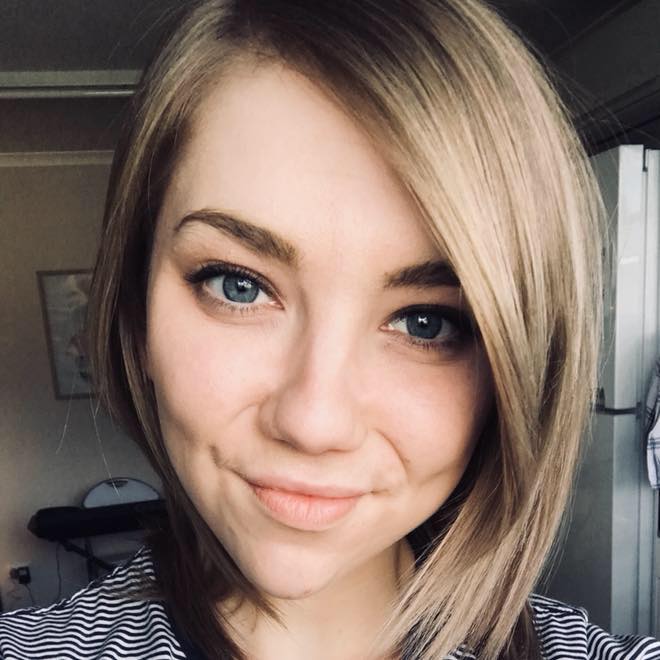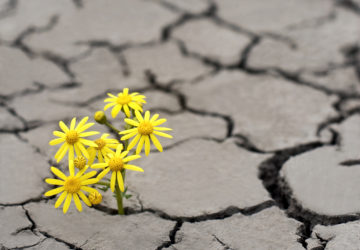Emily’s Story – Hope for Tomorrow
On the 14th November 2015, my life hit rock bottom. I sat with my psychologist and listened to her explain to me that I had no hope for a brighter future. She told me that I was too far-gone inside the eating disorders, anxiety and depression that controlled me. A full recovery should not be expected. She elaborated, saying that while I may possibly learn to manage my symptoms, my life would be a constant recovery versus relapse roller coaster. As I sit here writing this, I can vividly remember the utter hopelessness that overwhelmed me in that moment. I remember thinking, if this is my life, the ‘future’ I have to look forward to, what’s the point? I remember questioning my purpose and reason to live and why I would want to continue with this existence if the years to come would be no different from the battle I was currently facing.
That was the first time I seriously outweighed the pros and cons of pushing through or ultimately giving up. And if I’m honest, if it weren’t for a conversation with a friend, my story could have ended differently.
World Suicide Prevention Day was held on the 10th of September. Statistics say that 1 person dies by suicide every 40 seconds, and that by 2020, this will rise to 1 person every 20 seconds. There is no question that more needs to be done in order to prevent such a tragic and unnecessary loss of life. I certainly do not have all the answers. However, as someone who has battled with mental health and survived the lowest points of my illness, I wanted to take this opportunity to share four things that helped me to recover and may help someone else know that there is hope for a better tomorrow.
- Speak Up
Talk to someone. Anyone, a friend, family member, neighbour, colleague or health care professional; speak up and tell someone how you’re feeling and what you’re thinking. It’s amazing the sense of reason, logic and calm you can gain from including an outside perspective.
- Stay Connected
It is so easy to isolate yourself when life feels overwhelming. Hiding away only amplifies feelings of hopelessness and the sense that nobody cares. Choosing to consciously connect with others and not be alone with your thoughts, can remove the risk of making irreversible decisions.
- Breathe
This is one I practise regularly. When the anxiety becomes too much, breathe. When your mind is racing and you feel overwhelmed, breathe. Stop, concentrate and breathe. Breathe deeply – from your diaphragm, through your nose. When you do so, it will stimulate the part of the nervous system that is responsible for relaxation and calming the body down. In other words, if you breathe this way the body will have no choice but to relax. Regular relaxation and correct breathing will also stop the production of stress hormones and will aid in keeping your body and mind calm.
- Choose Gratitude
Learning to be consciously grateful for even the smallest things in my world has changed my life. When you’re experiencing a low moment, it’s easy to forget all that is good in your life. However, by intentionally recognising the things, the people, the moments that I’m most grateful for, all anxiety and sense of overwhelm fades into nothing. And in choosing gratitude, joy is produced. Because it’s hard not be happy when you’re reminding yourself of all the things that give you joy.
I’m not perfect and neither is my life. While I am not where I used to be, by any stretch of the imagination, there are still days where the anxiety I experience becomes overwhelming. But I have learnt that by talking to those I trust, inviting myself over for dinner (this has double the impact – free food and friends), breathing and being grateful for all that is good in my life, brings it all into perspective. There is so much joy to be found in the little, every day moments and there are far too many incredible life experiences yet to be had, to allow one moment of weakness to take it all away.
If you are reading this and struggling with suicidal thoughts, tell someone. If you don’t have anyone to call, there are number of professional services you can call:
Emergency: 000
Lifeline: 13 11 14
Beyond Blue: 1300 22 4636
Butterfly Foundation: 1800 33 4673
Kids Helpline: 1800 55 1800
You were never designed to battle mental illness alone. Your life is worth fighting for.
The overwhelming pain you are experiencing won’t last forever. Know that you have been created with a purpose on purpose and your people need you. And know that there are people who are willing and able to help you.
There is hope for a better tomorrow.




